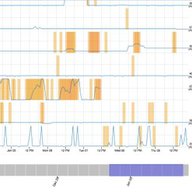
New Seismograph Improvements and Other Features
• 7 min read
It has been a busy last quarter of 2013 for RIPE Atlas. Here you have an overview of the latest features and new functionality.

Articles
Likes on articles
Suzanne Taylor is a Public Policy & Internet Governance Consultant. In her work with the RIPE NCC, she has engaged with a broad range of Internet stakeholders including the RIPE NCC membership, governments, law enforcement and intergovernmental organisations. From 2012 to 2016, she worked in communications at the RIPE NCC and has previously worked as a journalist and in media relations and science communications.

• 7 min read
It has been a busy last quarter of 2013 for RIPE Atlas. Here you have an overview of the latest features and new functionality.
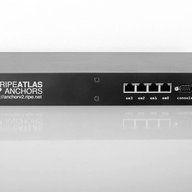
• 8 min read
RIPE Atlas anchors is now a full production service. We are actively seeking applications from those interested in and capable of hosting a RIPE Atlas anchor in their own networks. Find out what RIPE Atlas anchors are all about, the benefits of hosting an anchor, and how you can get involved.
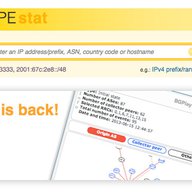
• 5 min read
We've revamped the RIPEstat webpages to make it easier to find the information you're looking for. We've added more information about the different available interfaces and data sources, expanded the FAQ, included a roadmap that details current development, focused on data analyses, made a complete…

• 7 min read
RIPEstat users told us they wanted to be able to compare different resources in the same widget, and be able to monitor network events in real time. We're happy to announce that we've started to make this functionality available, beginning with two existing widgets: Country Routing Statistics and B…
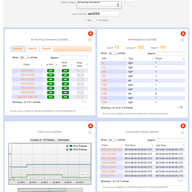
• 7 min read
RIPEstat users can now compare results for multiple resources across multiple widgets in a new comparison page - and share the results with others using the permalink feature. Here we describe several use cases where this new functionality might come in handy.
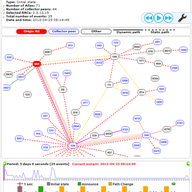
• 16 min read
This is the first RIPEstat demo summary since RIPE 65. Since that time, there have been a lot of exciting new developments we couldn't wait to share with you! The demo was given during the RIPE 66 Meeting in Dublin, where users had the chance to meet the developers and ask questions face to face.
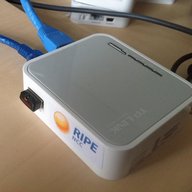
• 8 min read
Once again, we have lots of developments to tell you about, including new features, an enhanced website, a new probe, new sponsors and more. Keep reading to find out about all the latest developments and upcoming plans.
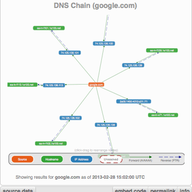
• 7 min read
Many new features and improved functionality have been made available in RIPEstat since the last update. We're excited to announce that users can now retrieve Internet number resource-related information by querying for hostnames and countries in RIPEstat. There are also five new widgets: Country R…
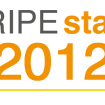
• 9 min read
Following up on our original summary of RIPEstat's first year, we take a look back at 2012 and review some of the highlights that have hopefully helped make RIPEstat an even more valuable tool for you, the users. We also give a sneak peek at some of the big developments we'll be hard at work on in …
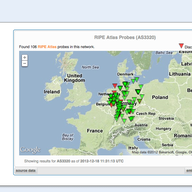
• 5 min read
We've got some new features coming soon and so we want to wait until January before doing the next RIPEstat demo, but in the meantime there have been some developments we wanted to share with you, including a few new widgets, the new text service, support for single IP address querying, and informa…
“Dear Suzanne, Congratulation for this country report. We would like to kindly contact you (or the technical team) for obtaining some information about RIPE databases, and how some of the information in the Germany report could be obtained using your APIs. Could it be possible?”
Hi Alvaro, thanks! The Germany Country Report was a special project that required a lot of manual digging through our data, so a lot of the data isn't easily accessible via our APIs, but I can put you in touch with the data analysts if you have specific questions. You can get in touch at labs@ripe.net
“Great work, thanks! Could you please have a look on Austria and Switzerland next?”
Thanks for your feedback, Dominik, and we're glad you found the report interesting! We're currently looking into which countries (or topics) we'll focus on next, so stay tuned.
Hi Andreas, Thanks for your interest in the report. The left side of the transfers graphic indeed represents the transfer of IPv4 addresses from those countries into Germany, and the right side represents IPv4 addresses that were transferred from Germany to other countries. So even though transfers (totalling 395,520 addresses) were made from the US to Germany, other transfers (totalling 23,552 addresses) were also made from Germany to the US. Transfers within Germany (the thick yellow block at the top of the graphic) represent all the transfers that were made between two different Germany entities. So even though they count as transfers, the addresses remain in the country. The EU designation is indeed a bit confusing. Mapping IP addresses to countries is tricky. For this graphic, we used the public delegation records. This isn’t perfect, as the country codes do not necessarily indicate where a resource is used, but it's the best we have for statistical purposes. For various reasons, some resources are listed as belonging to the EU rather than a specific country - for example, if they belong to a network that operates internationally. I hope that answers your questions, but please let me know if you'd like more information! Best regards, Suzanne Taylor
“Suzanne, We had IPv6 mints in Budapest. May we hope for blockchain chocolates at a future RIPE meeting? :--)”
You'll have to come to RIPE 75 to find out ;)
Showing 4 comment(s)